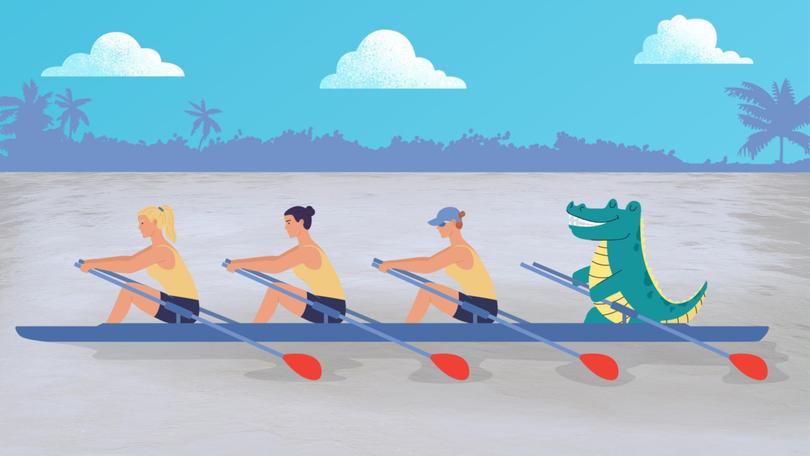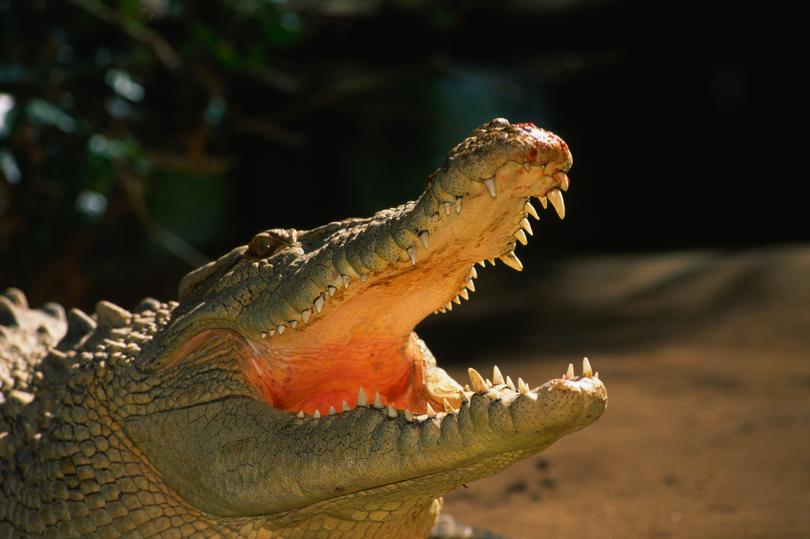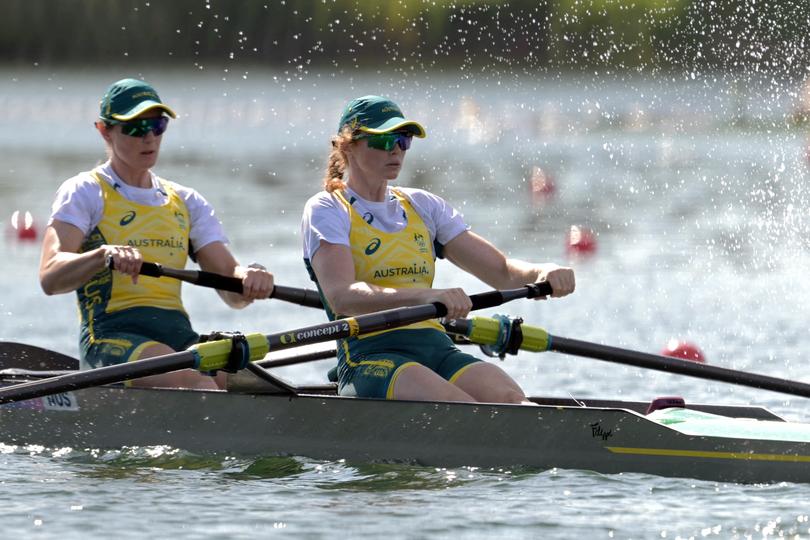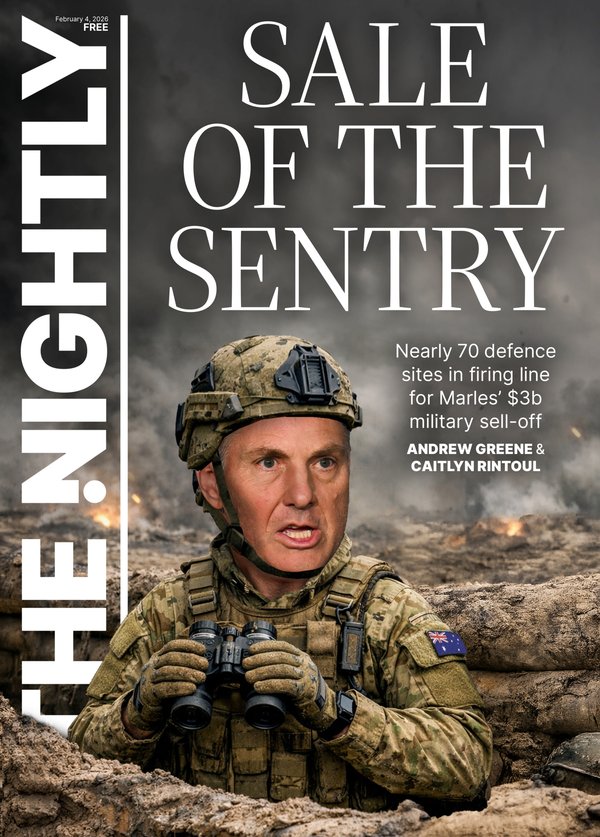JENI O’DOWD: Dangerously dumb idea for crocodile filled Fitzroy River in QLD to be 2032 Olympic rowing venue
JENI O’DOWD: If Australia wants to be taken seriously as a world-class sporting nation, we should aim for Olympic venues that don’t double as wildlife documentary sets.

Forget the Summer Olympics 2032. Welcome to the Survival Olympics, where competitors will race not just for gold but for their lives.
At least, that’s what the world’s media will think if Australia hosts Olympic rowing in a river full of crocodiles.
Despite being home to one of the country’s largest populations of saltwater crocodiles, the Fitzroy River in Rockhampton, Queensland, is being proposed as the venue for the 2032 Olympic rowing events.
Sign up to The Nightly's newsletters.
Get the first look at the digital newspaper, curated daily stories and breaking headlines delivered to your inbox.
By continuing you agree to our Terms and Privacy Policy.But according to Queensland Senator Matt Canavan, only “southerners “— that is, anyone outside Central Queensland — are worried about this.
“Some southerners are showing their desperation raising crocs as an issue,” he said dismissively, as though the idea of international athletes competing in waters patrolled by apex predators should be of no concern.
Right. Because what would people from Sydney or Melbourne know about hosting international sporting events?
But let’s take a moment to imagine what will happen when the world’s media catches wind of this. Picture the headlines in The Sun or the New York Post:
“CROC SHOCK! Olympic Rowers To Face Jurassic Rivals”
“ROW FOR YOUR LIFE! Rowing With Reptiles At The 2032 Games”

We already battle a reputation as a beer-chugging, thong-wearing outpost, and this type of media would only reinforce that stereotype.
This isn’t a local regatta with a handful of Queensland schoolkids. This is the Olympics. It is a global event with millions of viewers, an international audience, and the world’s best athletes, many of whom might understandably feel uneasy about competing in a river known for large, prehistoric predators.
It’s one thing to train in harsh conditions, but asking Olympians to share their racecourse with a croc that hasn’t had its breakfast yet? That’s something else entirely.
Supporters of the proposal say “it’s fine” because Rockhampton already hosts State and regional rowing championships without issue.
But here’s the difference: the world doesn’t watch a Queensland State rowing championship.
The eyes of billions will be on the Olympics. It’s a long shot, I agree, but what would happen if an Olympian became a croc’s afternoon snack?
The Queensland Government officially classifies Rockhampton as croc country, which includes the region from the Boyne River south of Gladstone to the Torres Strait as a crocodile habitat.
Even the Rockhampton Regional Council acknowledges the area’s reputation, with regular crocodile sightings in the Fitzroy River and surrounding waterways.
Authorities frequently erect crocodile warning signs at public access points after sightings, and locals are urged to follow Crocwise guidelines.

Recent incidents, including a 4 metre crocodile spotted in the Fitzroy River, reinforce that Rockhampton is not just croc country in name — it’s a reality.
Sarah Black, president of the Fitzroy Rowing Club, told news.com.au that safety measures were in place to manage the river’s crocodile population.
“The Fitzroy is a natural habitat for crocodiles, we’re well aware of that,” she said.
“We certainly have regular liaisons with our department of environment here. Their officers go out and do regular surveys. It is risk-managed and something our sport does quite well.”
She is backed by Sarah Cook, CEO of Rowing Australia and a two-time Olympian.
“Investment from State and Federal governments in regional cities like Rockhampton would leave a lasting Olympics legacy for the growing sport,” she said.
“The Australian rowing team prepared for Tokyo there, we held our staging camp.
“It would be our intention to do the same for both Los Angeles and for Brisbane.”
That’s all well and good, but no amount of investment or training camps will change the global perception of Olympians rowing in crocodile-infested waters.
I have nothing against Rockhampton, and I fully support hosting Olympic events in regional areas — it’s a great way to extend the benefits beyond Brisbane.
In fact, I started my career working in regional cities, so I know firsthand how frustrating it is when regional areas are overlooked in favour of capital cities.
But this is not the right way to do it. There’s a difference between giving regional Australia a share of the Olympic spotlight and making a decision that turns Australia into an international punchline.
Concerns over the Seine River’s water quality materialised during the 2024 Paris Olympics when several athletes fell ill after competing in its waters.
The men’s triathlon was postponed due to elevated E. coli levels following heavy rainfall.
Subsequently, Belgian triathlete Claire Michel was hospitalised with an E. coli infection, leading to Belgium’s withdrawal from the mixed relay event.
Similarly, Swiss triathlete Adrien Briffod suffered a stomach infection after his race. While Paris put on one of the most visually stunning Olympics in history, the Seine controversy did cast a shadow.
Now imagine what would happen if the global conversation around Brisbane 2032 was about whether athletes were at risk of being eaten alive.
If Australia wants to be taken seriously as a world-class sporting nation, we should aim for Olympic venues that don’t double as wildlife documentary sets.
Otherwise, don’t be surprised when international broadcasters start referring to Brisbane 2032 as the Hunger Games — and they won’t be talking about the catering.
